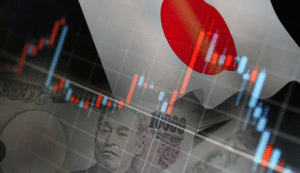$GBP #UKInflation #EconomicData #ONS #InflationSurge #FinancialMarkets #InterestRates #EconomicGrowth #MonetaryPolicy #UKNews #JulyData
Why Did UK Inflation Surge to a Surprising 3.8% in July? Learn What’s Driving the Increase!
In the latest update on the UK economy, the annual inflation rate escalated unexpectedly to 3.8% in July, as reported by the Office for National Statistics. This uptick surpasses economic forecasts and signals emerging challenges within the UK’s financial landscape. As we delve into this development, it’s crucial to understand the dynamics at play and the potential ripple effects on market conditions and monetary policy.
Unpacking the July Inflation Figures
July’s inflation rate of 3.8% marks a notable increase, raising concerns amongst economists and policymakers. Typically, inflation rates reflect the balance between supply and demand within an economy, as well as external economic pressures. The surge suggests a complex interplay of increased consumer spending, perhaps rebounding from previous economic downturns, and ongoing supply chain disruptions.
Drivers Behind the Unexpected Increase
Several factors could be contributing to this inflationary spike. First, the post-lockdown economic rebound might be fueling consumer spending increases. Additionally, global supply chain issues continue to impose cost pressures on businesses, which often pass these costs onto consumers. Moreover, energy prices have been notably volatile, with recent increases further straining household budgets.
Implications for Monetary Policy and Interest Rates
This unexpected rise in inflation prompts a crucial examination of potential shifts in monetary policy. The Bank of England, tasked with stabilizing prices, may need to consider adjusting interest rates if inflation continues to climb. Such decisions are pivotal as they influence borrowing costs, consumer spending, and ultimately, economic stability.
Impact on the UK Financial Markets
The financial markets are likely responding to these inflation figures with heightened sensitivity. Investors and financial analysts closely monitor such economic indicators to adjust their strategies and forecasts. A sustained inflation increase might lead to a more cautious investment landscape, particularly in sectors sensitive to interest rate changes like real estate and consumer discretionary goods.
Looking Ahead: Projections and Economic Health
Looking forward, the trajectory of UK inflation will be critical in shaping economic strategies. Should inflation stabilize, it may alleviate immediate pressures on the Bank of England to hike rates. However, if inflation persists or escalates, more aggressive monetary tightening may be necessary, potentially cooling economic growth.
For those keen on following these developments and their implications on the broader financial markets, keeping informed through credible financial news platforms is essential. Explore more on this topic and related financial insights at Financier News.
In conclusion, while the rise in the UK’s July inflation rate to 3.8% introduces new complexities, it also offers a vital gauge of the post-pandemic economic recovery’s sustainability. Stakeholders, from policymakers to investors, need to navigate this evolving landscape with informed precision and strategic foresight.





Comments are closed.